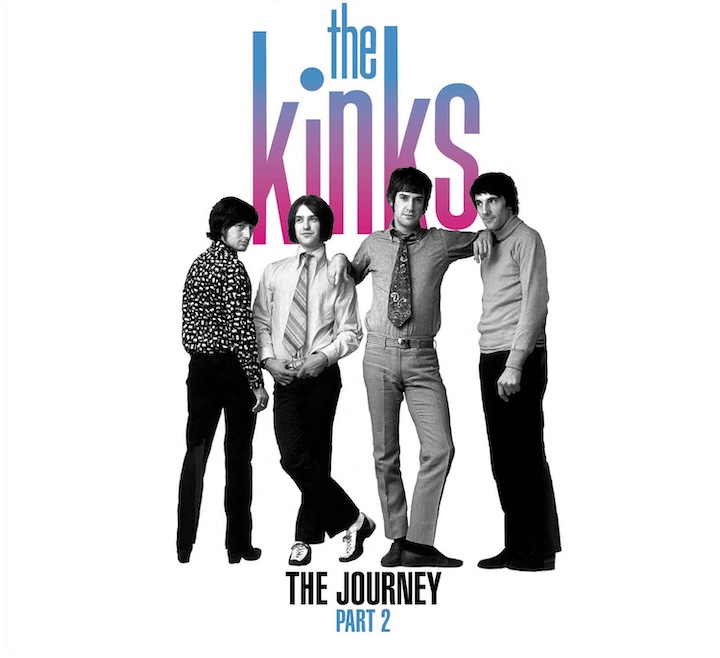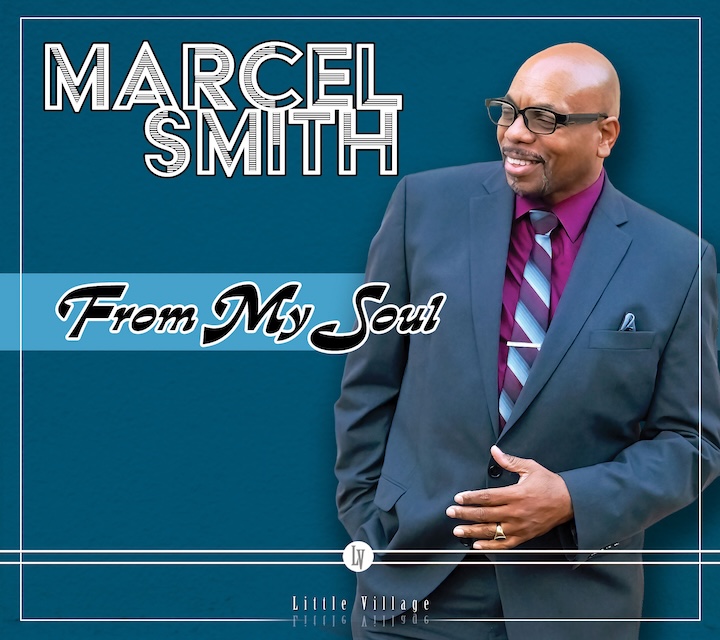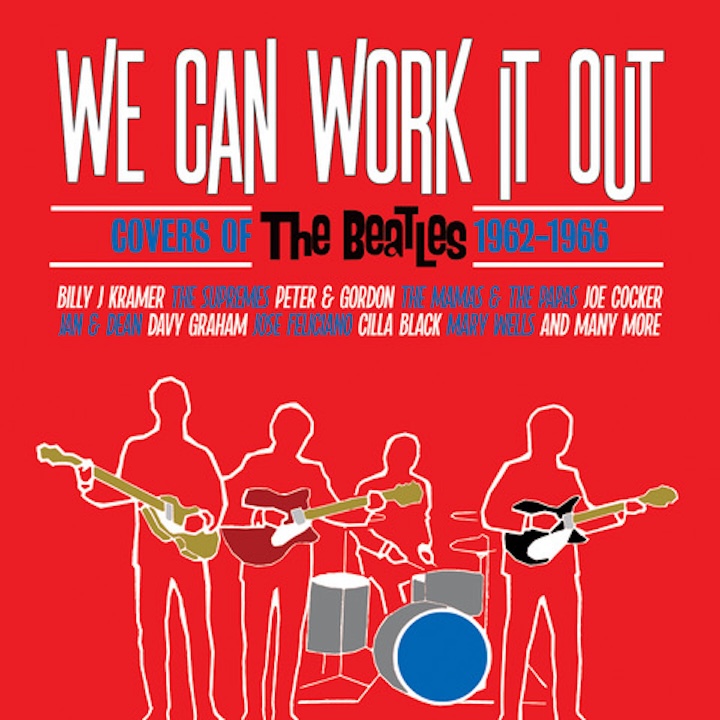It’s a safe bet that during the Beatles era, many musicians wished they could be members of that group. Since this wasn’t possible, a lot of them contented themselves with recording the Fab Four’s songs. A wide assortment of artists issued covers, from Motown stars such as the Supremes (“You Can’t Do That”) to pop groups ranging from Spanky and Our Gang (“And Your Bird Can Sing”) to the 5th Dimension (“Ticket to Ride”). Even performers from outside the pop/rock world weighed in, including Liza Minelli (“For No One”), Count Basie (“Hold Me Tight”), and Mae West (“Day Tripper”).
A new box, We Can Work It Out: Covers of the Beatles 1962–1968, features all these tracks and many other John Lennon, Paul McCartney, and George Harrison compositions, plus one song they didn’t write: a novelty track from the Four Preps called “A Letter to the Beatles.” The anthology serves as a companion to 2020’s Looking Through a Glass Onion: The Beatles’ Psychedelic Songbook 1966–72. Like that covers anthology, the new one includes three CDs and a well-illustrated booklet with information about every track. The years in the album’s title apparently reflect when the Beatles created or recorded the music because the 85 selections here actually date from about 1963 to 1974.
The set features a fair number of luminous artists and a few famous covers, such as the Mamas and the Papas’ “I Call Your Name” and Peter and Gordon’s chart-topping “A World Without Love.” Some well-known tracks, such as the Rolling Stones’ “I Wanna Be Your Man” and the Silkie’s “You’ve Got to Hide Your Love Away,” are missing, however, undoubtedly because of licensing issues. The focus is more on obscure artists and recordings, including several songs the Beatles never officially released, among them “It’s for You” by Trea Dobbs and “Tip of My Tongue” by Tommy Quickly, who was managed by Brian Epstein.
Some of the artists seem to have been content to simply ape the Beatles’ sound and arrangements. “P.S. I Love You” by the German group the Rattles, for example, could be mistaken for an alternate version by the Fab Four. Ditto “Do You Want to Know a Secret” by Billy J. Kramer & the Dakotas, who relied heavily on Lennon/McCartney material throughout their career; and Kenny Lynch’s “Misery,” which has the reported distinction of being the first-ever Beatles cover. Also barely distinguishable from Beatles recordings are “Baby’s in Black” by the Hi-Fis, the Crickets’ “From Me to You,” the In-Sect’s “Yes It Is,” Frank Bacon’s “She Loves You,” the Baskervilles’ “Another Girl,” and the Rackets’ “I Want to Tell You.” Several more tracks echo the well-known recordings but in other languages, including Les Lionceaux’s French reading of “It Won’t Be Long” and Dino E I Kings’ Italian “I Should Have Known Better.”
The proceedings grow more interesting when the performers bring something fresh to the material. Mary Wells’s arrangements of “Please Please Me” and “Help!” aren’t much different from the Beatles’ recordings, but brassy instrumentation and her distinctive voice transform these tracks. The Charles River Valley Boys turn “I’ve Just Seen a Face” into a mandolin- and fiddle-spiced bluegrass gem while Los Angeles’s Sunshine Company reinvents “I Need You” as moody midtempo folk and saxophonist Steve Marcus reimagines “Tomorrow Never Knows” as an 11-minute jazz excursion.
Also likably reworked are “If I Fell,” by the Coterie, an all-female vocal quartet from Dublin who recall the Paris Sisters; “In My Life” by Jose Feliciano; “I’ll Follow the Sun” by Glyn Johns, who later served as chief engineer on the sessions for Let It Be; “You’re Gonna Lose That Girl,” by Canada’s Five Man Electrical Band; and “Taxman” by blues artist Junior Parker.
Inevitably, in a multi-artist set like this, not everything is a winner. A horn-spiced instrumental reading of “Norwegian Wood” by Paraffin Jack Flash Ltd., while undoubtedly different, misfires. So do the supper-club jazz vocalizing of Strawberry Fair on “Things We Said Today”; the big band reading of “Got to Get You into My Life” by Jackie Trent; and Jan & Dean’s “You’ve Got to Hide Your Love Away,” from their misconceived Filet of Soul LP.
Of course, this package starts with the advantage of featuring rather consistently first-rate material, so even many of the tracks that don’t sound particularly fresh still sound pretty great. Lots of them, though, manage to sound both fresh and great, which is why Beatles fans would be well advised to check out this anthology.
The Kinks’ ‘Journey Part 2’ Intersperses Hits and Deep Cuts

The Kinks, whose heyday ran from the mid-sixties to the mid-eighties, broke up before the turn of the century. That didn’t stop the flow of albums, however. Recent years, for example, have witnessed the release of lavish box sets like Muswell Hillbillies/Everybody’s in Show-biz and The Anthology 1964–1971. There has also been a seemingly endless stream of one- and two-disc hits packages with titles like The Definitive Collection, The Singles Collection, The Ultimate Collection, The Essential Kinks, Greatest Hits, and Compleat Collection, to name a few. It’s enough to keep a listener busy all day and all of the night.
Still, the band has recently come up with a new approach to anthologizing that might prompt serious fans to reopen their wallets. Called The Journey, this retrospective series of two-CD sets began with the March 2023 release of Part 1, which has just been followed by Part 2. No word yet on whether additional sets will follow.
The series stands out on several counts. First, its tracks have been newly remastered. Second, it sprinkles in a handful of rarely heard and previously unreleased versions, including mono and new mixes and alternate takes. Third, while featuring some of the group’s biggest hits, it focuses mostly on deep cuts. Fourth, the band members themselves selected the material for this series, and they comment on their choices in accompanying booklets. The songs in each set ostensibly tell a tale and are grouped into four sections, but the storylines are weak.
The music is not, however. On the 34-track Part 2, the Kinks offer such chart successes as “Till the End of the Day,” “A Well Respected Man,” “Lola,” “Sunny Afternoon,” and “Dedicated Follower of Fashion,” all of which capture leader Ray Davies’s wit as well as his band’s ability to create succinct and memorable pop/rockers. Among the many lesser-known but equally enjoyable tracks are “No Return,” the original mono version of a folky acoustic number from 1967’s Something Else that sounds influenced by samba; the sprightly “Holiday Romance,” a highlight of 1975’s Soap Opera; and the live “New Victoria Suite,” which includes two compositions whose studio versions also first surfaced on Soap Opera.
The hits are fine, but here’s proof, for anyone who still needs it, that the Kinks were much more than a singles band.
Marcel Smith’s Soulful Sophomore Release

Marcel Smith has been adding his silky vocals to gospel groups for several decades but the new, aptly named From My Soul is only his second solo album, following 2018’s Everybody Needs Love. In a word, it’s terrific. The Kid Andersen–produced set recalls the best of 1960s Chicago soul and, in its many ballads, sounds particularly redolent of Sam Cooke.
Smith co-wrote five of the tracks, proving he can write ’em as well as he sings ’em, and delivers fine covers of such numbers as Willie Nelson’s “Wake Me When It’s Over.” Also here: a horn-spiced reading of Tyrone Davis’s “Turn Back the Hands of Time,” one of two numbers where Smith shares vocal duties with soul singer Johnny Rawls; and “To Be True,” by longtime blues keyboardist Jim Pugh, who plays on the album. By the time you get to the set-closing nine-minute bonus track – a live-in-concert version of the Bee Gees’ “How Can You Mend a Broken Heart” – you’ll surely be hoping we don’t have to wait as long for a third album as we did for CDs one and two.
Jeff Burger’s website, byjeffburger.com, contains five decades’ worth of music reviews, interviews, and commentary. His books include Dylan on Dylan: Interviews and Encounters, Lennon on Lennon: Conversations with John Lennon, Leonard Cohen on Leonard Cohen: Interviews and Encounters, and Springsteen on Springsteen: Interviews, Speeches, and Encounters.



